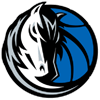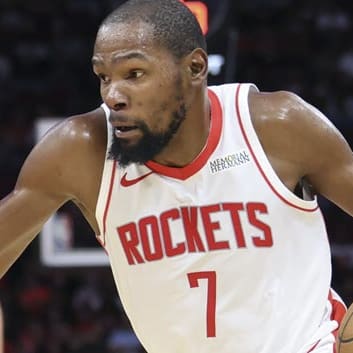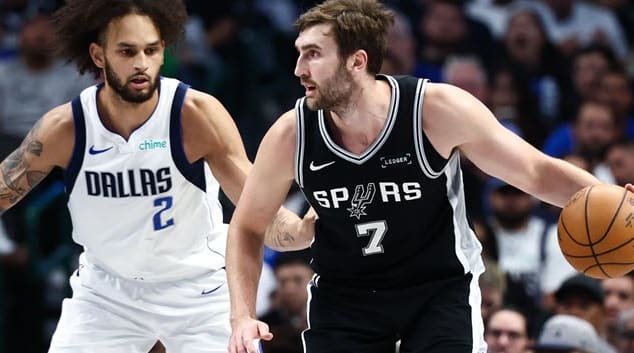The lexicon of sports is full of double meanings.
Take, for example, the word "potential." In many cases -- as with the Anthony Davises of the world preparing to enter the league next season and the Kyrie Irvings already showing their stuff as rookies -- potential indicates the ability to become the stars of tomorrow's NBA. Potential is a big part of -- if not the entire reason, in some cases -- why we watch some of the NBA's top young players.
And then there's potential. The high-draft busts. The superb athletes who can never seem to put it together in game situations. The guys who dominated college but lack what it takes to make it with pros. "Oh, he had potential," the venerable scout spat, the disgust in his voice scarcely disguised.
DeMarcus Cousins entered the league considered as likely as anybody in the 2010 NBA Draft to fall into the second type of potential, right with the Tyrus Thomases and DeSagana Diops (at least if you're Skip Bayless) of the world. Cousins held all the talent in the world but was considered too fiery to harness the potential into the dominant NBA career his measurables suggested. There were struggles in year one, and arguments with the head coach and eventually that head coaches firing. But fantasy players are well in tune with Cousins's improvements in year two.at 16.6 points, 11.5 rebounds and ranking as just one of seven qualified
The lexicon of sports is full of double meanings.
Take, for example, the word "potential." In many cases -- as with the Anthony Davises of the world preparing to enter the league next season and the Kyrie Irvings already showing their stuff as rookies -- potential indicates the ability to become the stars of tomorrow's NBA. Potential is a big part of -- if not the entire reason, in some cases -- why we watch some of the NBA's top young players.
And then there's potential. The high-draft busts. The superb athletes who can never seem to put it together in game situations. The guys who dominated college but lack what it takes to make it with pros. "Oh, he had potential," the venerable scout spat, the disgust in his voice scarcely disguised.
DeMarcus Cousins entered the league considered as likely as anybody in the 2010 NBA Draft to fall into the second type of potential, right with the Tyrus Thomases and DeSagana Diops (at least if you're Skip Bayless) of the world. Cousins held all the talent in the world but was considered too fiery to harness the potential into the dominant NBA career his measurables suggested. There were struggles in year one, and arguments with the head coach and eventually that head coaches firing. But fantasy players are well in tune with Cousins's improvements in year two.at 16.6 points, 11.5 rebounds and ranking as just one of seven qualified players with at least one assist, steal and block per game. Cousins has the potential -- the good kind -- to be one of the best fantasy power forwards in the game if he can just get his field goal percentage up from an abysmal 43.6% mark.
Of course, fantasy basketball is a game of ifs. So let's diagnose: what are the symptoms behind Cousins' weak shooting, and is there a cure?
As detailed in last week's edition of the Alert, much of what defines a shooter's percentages can be seen in where he takes his shots. Watching Cousins play, his propensity for the long two-point jumper sticks out like a sore thumb. For a guy with the speed and power he possesses, it seems like a waste not to drive to the rim with alacrity. To be sure, Cousins takes a fair amount of these long jumpers -- just over three per game. But this isn't the full culprit behind his ineffectiveness with the shot this season -- Cousins has made 42% of these shots so far, better than the league average from that distance.
It isn't as if he has shied away from the basket to make room for these jumpers, either. Cousins averages just under seven shots at the rim per game -- even with his relatively low minute totals (29.5 per game) only Blake Griffin and David Lee get to the rack more often among power forwards. Some of this is due to Cousins's impressive work on the offensive glass. Only Nikola Pekovic and Enes Kanter have pulled in a higher percentage of their teams' missed shots. His glass work was on full display Sunday night against the Suns, as he pulled in six offensive rebounds and poured in 10 points as a direct result (4-for-5 on field goals, 2-for-2 on free throws).
But as much as Sunday's game showed what can be as a result of Cousins's absurd rebounding ability, it also showed what remains to be fixed. Cousins finished the game 7-for-20 overall from the field, meaning the former Kentucky standout made just three of his 15 attempts without the help of a rebound near the basket.
One of the endemic problems with the Kings this season has been their inability to set their teammates up for easy baskets. The Kings rank third-to-last in the NBA in terms of assist rate, or assists per made field goal. Although some of this has to do with a court that rarely awards assists to either team, the Kings still have one of the more stagnant offenses in the league. This year, Cousins has learned the hard way that sharing is indeed caring:
At just 40.2%, no other power forward averaging at least 20 minutes per game has had fewer made shots at the rim assisted by his teammates than Cousins (purple), just as only three of his seven makes from the field were assisted Sunday night. And, as can be seen on the graph, there is a definite relationship (r = 0.523 since 2009) between having help at the rim and actually finishing off the basket. After all, it's difficult to get past the defense without some sort of distraction, and there's no better distraction than the ball in somebody else's hands until the last possible moment.
Of course, although some of the blame rests with Cousins's teammates, some must rest on his shoulders as well. Cousins's post game has struggled to the point where he is shooting just 40% in 135 attempts according to Synergy Sports. He has only converted 36.7% of his shot attempts as the roll man on pick-and-roll plays. There have only been two reliable play types to get an effective shooting percentage out of the big man -- working off cuts, in which he is 24-for-41 (58.5%) and getting out in transition, where he is 23-for-33 (69.7%). Unfortunately, these plays make up fewer than 20% of his offensive action.
As the Kings grow and evolve under Keith Smart, the team should be able to implement more of these plays into the offensive flow of the game. Cousins should get more shots to fall on his own as the season progresses as well, if only due to the law of large numbers (the Nerd's way of saying the law of averages), especially considering he managed 62.4 percent shooting at the rim last season with similarly bad assist rates.
If Cousins had made 63.9% of his shots at the rim this season as the league has instead of his own 51.6% mark, he would be looking at another 0.8 made shots per game. As insignificant as that sounds, we're talking about an extra 1.6 points per game and an extra 5.6 field goal percentage points. Even at just 30 minutes per game, Cousins could push 18 points per game while rebounding at a Kevin Love-esque rate (better, actually). That is a stupendously good fantasy player, particularly when we consider that such a player would almost certainly earn more minutes.
The development still needs to take place, both at the individual and team levels. DeMarcus Cousins, however, despite his early career spats and his early brushes with the bad side of potential, appears poised to step into an elite fantasy level very soon. He already rebounds as well as anybody we've ever seen at such a young age. If the shooting can catch up, we could be looking at an elite fantasy commodity for years to come.




































